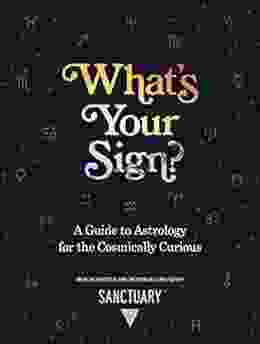On the Pleasure Principle in Culture: Unveiling the Hidden Dynamics of Human Behavior

Sigmund Freud's seminal work, "Beyond the Pleasure Principle," has left an indelible mark on the field of psychoanalysis and our understanding of human nature. In his groundbreaking theory, Freud proposed the existence of a universal and fundamental drive in all human beings: the Pleasure Principle.
5 out of 5
| Language | : | English |
| File size | : | 1340 KB |
| Text-to-Speech | : | Enabled |
| Screen Reader | : | Supported |
| Enhanced typesetting | : | Enabled |
| Word Wise | : | Enabled |
| Print length | : | 305 pages |
According to Freud, the Pleasure Principle governs our behavior, directing us to seek pleasurable experiences and avoid painful ones. This drive manifests itself in all aspects of our lives, from our basic instincts to our most complex cultural creations.
The Pleasure Principle in Everyday Life
The Pleasure Principle is evident in our everyday actions and decisions. We eat when we are hungry, sleep when we are tired, and engage in activities that bring us joy and satisfaction. These simple pleasures provide us with a sense of contentment and fulfillment, motivating us to repeat them.
However, the Pleasure Principle is not always straightforward. Sometimes, immediate gratification can lead to long-term pain or discomfort. For example, indulging in unhealthy foods may provide temporary pleasure, but it can ultimately damage our health.

The Pleasure Principle and Culture
The Pleasure Principle extends beyond our individual experiences to shape our collective culture. Cultural norms, values, and beliefs often reflect the desire for pleasure and the avoidance of pain.
For instance, many cultures emphasize the importance of material wealth and possessions, which are often associated with pleasure and status. Similarly, religious beliefs and practices often promise eternal bliss or punishment in the afterlife, influencing our moral behavior.

Sublimation and the Transformation of Pleasure
Freud recognized that the Pleasure Principle can sometimes conflict with the demands of civilization. In his later work, he introduced the concept of sublimation, a process by which primitive or instinctual drives are transformed into socially acceptable and culturally productive activities.
Sublimation allows us to channel our desires in ways that benefit both ourselves and society. For example, aggressive impulses may be sublimated into competitive sports or artistic expression. Sexual desires may be sublimated into romantic relationships or creative pursuits.
The Death Drive and the Limits of Pleasure
In his later writings, Freud proposed the existence of another fundamental drive alongside the Pleasure Principle: the Death Drive. He believed that this drive represents a tendency towards self-destruction and disintegration.
The Death Drive may manifest itself in destructive behaviors, such as war, violence, and self-harm. It can also underlie our unconscious desire to return to a state of non-existence before birth.
Freud's theory of the Death Drive is controversial, but it highlights the complex and paradoxical nature of human desires. The pursuit of pleasure is not always straightforward, and it can sometimes lead to self-sabotage and destruction.
The Legacy of Freud's Theory
Sigmund Freud's theory of the Pleasure Principle has had a profound impact on our understanding of human behavior and culture. His work has inspired generations of scholars and practitioners in the fields of psychoanalysis, psychology, and sociology.
The Pleasure Principle has also found its way into popular culture, influencing literature, art, and film. By shedding light on the hidden dynamics of human nature, Freud's theory has helped us to better understand ourselves and the world around us.
In "On the Pleasure Principle in Culture," Sigmund Freud presents a comprehensive and thought-provoking examination of the role of pleasure in shaping human behavior and culture. His theory provides a valuable framework for understanding the complex interplay between our desires, our actions, and the social world we inhabit.
By delving into the depths of the Pleasure Principle, we can gain a deeper appreciation for the hidden forces that drive our thoughts, feelings, and actions. This knowledge empowers us to make more conscious choices, cultivate a more satisfying life, and contribute to a more just and harmonious society.
5 out of 5
| Language | : | English |
| File size | : | 1340 KB |
| Text-to-Speech | : | Enabled |
| Screen Reader | : | Supported |
| Enhanced typesetting | : | Enabled |
| Word Wise | : | Enabled |
| Print length | : | 305 pages |
Do you want to contribute by writing guest posts on this blog?
Please contact us and send us a resume of previous articles that you have written.
 Book
Book Novel
Novel Page
Page Chapter
Chapter Text
Text Story
Story Genre
Genre Reader
Reader Library
Library Paperback
Paperback E-book
E-book Magazine
Magazine Newspaper
Newspaper Paragraph
Paragraph Sentence
Sentence Bookmark
Bookmark Shelf
Shelf Glossary
Glossary Bibliography
Bibliography Foreword
Foreword Preface
Preface Synopsis
Synopsis Annotation
Annotation Footnote
Footnote Manuscript
Manuscript Scroll
Scroll Codex
Codex Tome
Tome Bestseller
Bestseller Classics
Classics Library card
Library card Narrative
Narrative Biography
Biography Autobiography
Autobiography Memoir
Memoir Reference
Reference Encyclopedia
Encyclopedia Vladas Griskevicius
Vladas Griskevicius R Doak Bishop
R Doak Bishop Rachelle Nelson
Rachelle Nelson Rob Sheffield
Rob Sheffield Robert D Odze
Robert D Odze Robert Thiel
Robert Thiel Shaheen Merali
Shaheen Merali Robert Stanek
Robert Stanek Sally Asher
Sally Asher Robert Rath
Robert Rath Sam Williams
Sam Williams Mark E Byrnes
Mark E Byrnes Radiance Satterfield
Radiance Satterfield Sherrie Eldridge
Sherrie Eldridge William F Buckley Jr
William F Buckley Jr Regina Samuelson
Regina Samuelson Rick Emerson
Rick Emerson S T Joshi
S T Joshi Renan Souza
Renan Souza Rob Rose
Rob Rose
Light bulbAdvertise smarter! Our strategic ad space ensures maximum exposure. Reserve your spot today!
 José MartíFollow ·19.9k
José MartíFollow ·19.9k Devin CoxFollow ·11.2k
Devin CoxFollow ·11.2k John MiltonFollow ·14.6k
John MiltonFollow ·14.6k Christian CarterFollow ·19.8k
Christian CarterFollow ·19.8k Derek BellFollow ·4k
Derek BellFollow ·4k Ethan MitchellFollow ·9.7k
Ethan MitchellFollow ·9.7k Isaiah PowellFollow ·5.4k
Isaiah PowellFollow ·5.4k Travis FosterFollow ·6.4k
Travis FosterFollow ·6.4k

 Eli Brooks
Eli BrooksOver 700 Organic Remedies Shortcuts And Tips For The...
: Embracing the Power of...

 Carter Hayes
Carter HayesUnveiling the Unofficial Political Religion of India: A...
Embark on an...

 Colin Richardson
Colin RichardsonOf Colors and Critters: A Journey Through the Animal...
In the tapestry of...

 Harry Hayes
Harry HayesUnveiling the Hidden Truths: Mao, Stalin, and the Korean...
Step into the enigmatic realm of the 20th...

 George Bernard Shaw
George Bernard ShawBand 1b Pink: A Journey Through the World of Reading
Band 1b Pink is a...
5 out of 5
| Language | : | English |
| File size | : | 1340 KB |
| Text-to-Speech | : | Enabled |
| Screen Reader | : | Supported |
| Enhanced typesetting | : | Enabled |
| Word Wise | : | Enabled |
| Print length | : | 305 pages |













